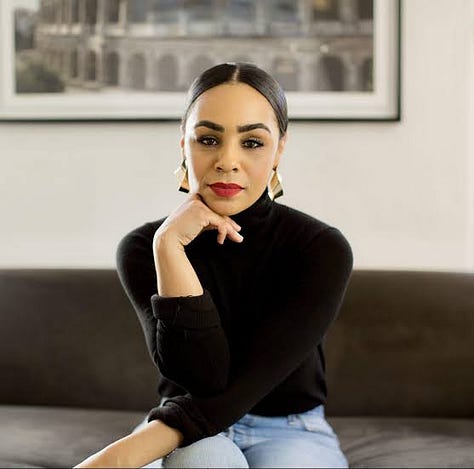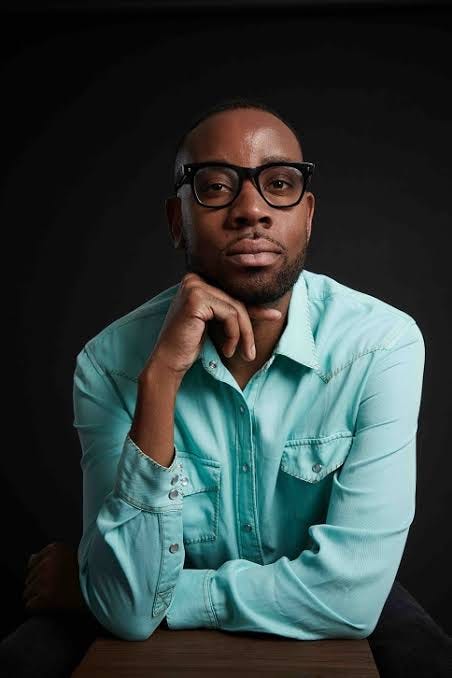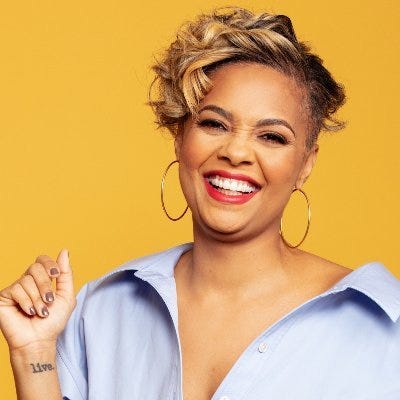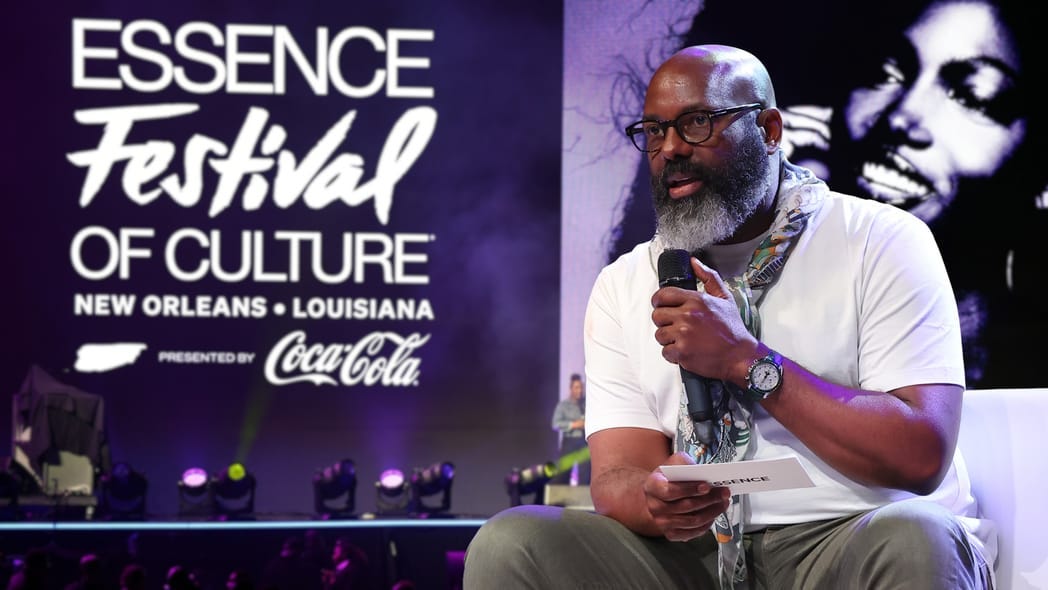Welcome to Follow the Leader, a series where we profile leaders worth following based on who we think they’re becoming. We believe that the greatest leadership is about becoming an answer to a problem. We study how these leaders are showing up publicly and culturally to meet that call and answer the deeper question: what are they becoming an answer to?
Role: Founder of Sundial Family of Companies / Sundial Group Holdings
Born: 1969, Liberia
Nationality: Liberian-American
Education: Babson College (B.A. in Business, 1991)
How He Came Back Into View
Over the past few weeks, a lot has been said about Essence and Essence Fest. We won’t rehash the details here, our thoughts are already shared here and on Instagram, but like so many in the community, we were feeling the tension between love and frustration. The kind of tension that only exists when something matters deeply to you.
We were encouraged to see that the Essence team listened and responded, even incorporating some of our feedback into their awaited response. But what truly made us lean in was a rare public appearance from Richelieu Dennis, the man behind it all.
He showed up on The Breakfast Club, a platform he admits he only visits every few years and usually to clear the air. But even in that setting, what came through was his heart: his commitment, his intention, and his burden. Watching him speak reminded us just how important he is to the culture and how rarely we take the time to actually see him.
The First Time We Met Him
I’ve only met Richelieu Dennis twice, both during my time working for Oprah. In 2016, I was tasked with curating our first (and only) SuperSoul100 list, a gathering of 100 creatives, innovators, and visionaries moving humanity forward. We brought in my friend Tina Wells to help surface names that weren’t already on our radar, and that’s how Rich came into the room. I knew SheaMoisture and of course had seen it in all the stores, but I didn’t yet know the man behind it.
We flew as many honorees as we could to Los Angeles for a photo shoot and celebratory brunch. That’s where I met him. He was quiet. Reserved. But deeply perceptive. While most were grateful just to be in the room, grateful to be in Oprah’s presence, Rich stood out. He wasn’t there to bask. He was there to build. He saw the room not as a reward, but as a platform. An opportunity to tell his story and cast a vision.
There was ambition in him. Audacity, too. The kind you need to create new infrastructure. To imagine the cultural and financial systems that could unlock wealth for Black communities at scale.
A year later, he sold Sundial Brands to Unilever, a deal reportedly worth $1.6 billion. And in 2018, Rich negotiated the return of Essence to Black ownership and launched the $100M New Voices Fund to invest in women of color entrepreneurs. That’s the kind of leader we believe in: someone who doesn’t just build for themselves, but makes a way for others.
So when we saw him appear on The Breakfast Club this past week, we leaned in. You could feel the frustration of being pulled out of the forest of long-term work just to explain logistics to Charlamagne. But he showed up anyway. Because he knows what’s at stake. He knows what he’s trying to build.
And that’s what made us return to the question we believe he's becoming the answer to:
What would it look like if we built something so big, so transformative, that we (Black folks of all kinds) never again had to ask for a seat at someone else’s table?
The Answer He’s Becoming
Becoming is our foundational frame for understanding a leader. It’s how we move beyond resumes and headlines to ask a deeper question: Who is this person becoming and what are they becoming an answer to?
The framework has five parts:
Be – the identity or form they carry
Who – the people they are uniquely called to serve as a result of their pain
Do – the kind of work they were created to do
By – the specific way they carry out that work
Have – the fruit or outcome they help others experience
This Becoming Statement was crafted through interviews, public appearances, and direct quotes we’ve studied from Richelieu Dennis recently. It’s a strategic and spiritual lens to help us see him more clearly.
Richelieu Dennis is a generational architect and cultural economist
For those of us who have created the culture but were forced to depend on systems we didn’t own and people we couldn’t trust
Who creates the economic landscape of culture and builds the monetization engine that returns value to our communities
By building big businesses, and designing the infrastructure for those businesses and developing the leaders who run them
So that the Black diaspora can become regenerative, self-sustaining, and able to invest back into itself for generations to come.
The Work He Was Born to Do
We believe Rich is designed for cultural apostolic work – one of the rare leaders called to build what doesn’t yet exist. Apostles are not just visionaries; they are builders of systems, structures, and movements that make transformation possible at scale. Richelieu’s apostolic mantle shows up through his identity as a generational architect and cultural economist. He doesn’t just see the future, he constructs the economic and institutional scaffolding to sustain it.
Apostles often carry invisible weight. Beneath the boldness and billion-dollar deals is a man shaped by the pain of being first, going alone, and being misunderstood while building what others can’t yet see. He has spoken openly about the frustration of having to depend on people who never truly believed in the vision. There’s a unique kind of exhaustion that comes from always being the one to create the table, fund the dream, and carry the burden of proof for an entire community.
His core pain likely lives at the intersection of mistrust and hyper-responsibility, knowing the stakes are generational, but often lacking the support, alignment, or infrastructure to carry the weight with him. It’s the pain of watching others copy your model without credit. Of hearing the applause while carrying the debt. Of doing everything “right” and still being asked to explain yourself.
The Evidence + Fruit of His Becoming
The fruit of Richelieu Dennis’ becoming is showing up in businesses built, infrastructure established, and leaders developed. Through the New Voices Fund, he’s invested in over 100 Black-owned companies—from Mielle Organics to Squire, across beauty, tech, food, and wellness. At least four major exits have already returned billions in value to Black founders and families. He’s also developing the leaders who run them, offering mentorship, hosting retreats, and helping founders mature into CEOs.
Layered into all of this is a vertically integrated play: Richelieu is designing a world where we own the brands, the platforms, and the media that tell our stories. From returning Essence to Black ownership, recently purchasing Refinery29, BeautyCon, Afropunk amongst others. He’s been a quiet investor in spaces like NaturAll Club, and even played a strategic role in the Refinery29 x Vice Media deal, moves that signal not just brand interest, but narrative stewardship.
Beyond exits, his legacy extends through Sundial’s decade-long Community Commerce model, which reinvested a steady 10% of top-line revenue into West African supplier communities, elevating infrastructure, income, health, and education for thousands
It's long-game work. The kind of fruit you don’t always see right away, but one day realize you’ve been standing in a forest he planted.
Why He Was Created For Such a Time as This
Richelieu Dennis’s work is urgent because it confronts a foundational and generational crisis: Black culture is valuable, but Black creators are systemically locked out of ownership, capital, and wealth creation.
According to the Harvard Business Review, less than 1% of venture capital goes to Black founders. For Black women, that number drops below 0.35% (HBR, 2022). At the same time, Black consumers drive over $1.6 trillion in annual spending power (McKinsey, 2022). We build the culture, but we don’t own the platforms, products, or infrastructure that profit from it. As Dennis has put it:
“We create all this value for other communities and institutions—but we have no access to the mechanisms to retain and grow that value ourselves.”
Rich often speaks about the false perception of scarcity in Black communities. We are not short on talent, innovation, or cultural relevance. What we’re missing is infrastructure. Institutions. Access. And most critically, trustworthy capital that allows us to scale without having to compromise or relinquish control.
And if leaders like him don’t step into that gap—if they don’t become the answer—we remain trapped in the same cycle: we create, others capitalize. We build, others buy. Our culture circulates, but our communities do not.
But beyond the numbers, what’s truly at stake is belief. Without his becoming, we risk confirming the lie that ownership at scale isn’t possible for us.
What’s at stake isn’t just economic equity, it’s generational psychological freedom. His work makes belief possible again: belief in ownership, in legacy, in self-sufficiency. In a regenerative Black economy that no longer waits to be included.
His becoming doesn’t just change business outcomes it shifts generational psychology. It says: We’re not just worthy of wealth. We’re worthy of trust, of infrastructure, of our own economy.
What Might Get in the Way + What We’d Do About It
We don’t offer this section as critique, but as care. We believe Richelieu Dennis is carrying an apostolic assignment and any leader with that kind of mantle needs infrastructure around them as much as they build it through them. These are some things we believe could get in the way of his full becoming and what we’d advise if we were walking alongside him:
1. Undervaluing the Story While Building the System
Richelieu’s brilliance is in infrastructure. He has reverence for systems, capital, scale. But many of his brands—SheaMoisture, Essence, Refinery29—are storytelling brands. And yet, the broader community doesn’t always know how these pieces fit together or why they matter. He’s said himself: he doesn’t do many interviews. But that’s not just a media choice, it’s a missed opportunity to narrate the movement in real time.
What we’d do:
Create media platforms where the story of his becoming and the broader goal is consistently and clearly told. Not just about the wins, but about the blueprint. About the why. About the how we’re doing this so we can all learn. The cultural economy cannot survive without cultural storytelling.
2. Missing A Visionary Creative Counterpart
Every apostle needs someone who sees what they’re building and knows how to usher it into culture. Not a COO or executor. A chief cultural force. A mirror to his ambition, but with creative muscle and intuitive clarity. Someone who understands aesthetic, brand, timing, narrative, and amplification. He needs someone who can name what’s happening while he’s building it.
What we’d do:
Find or develop a creative visionary with authority, taste, and the ability to make his infrastructure a cultural movement. The vision deserves a steward who knows how to carry its energy, not just its execution.
3. Lack of Interconnectedness Between Brands
There’s brilliance in the individual platforms but the connective tissue is missing. The brands feel siloed, rather than unified by a greater mission. This weakens both cultural momentum and operational strength.
What we’d do:
Build shared language, shared values, and visible through-lines between all brands in the portfolio. Make it clear: this isn’t just a group of companies, it’s an ecosystem designed for collective power.
4. Black Exceptionalism Without Measurable Black Progress
We know Richelieu is thriving. But what about the broader community? How do we measure if the Black economy is becoming more regenerative because of this work?
What we’d do:
Establish and publish clear metrics for collective impact not just about exits, but reinvestment. Develop a framework that answers: How many jobs were created? How many families were changed? Homes purchased? How many new owners were trained? Then tell that story, boldly and repeatedly.
5. Choosing the Wrong Leaders
A single wrong hire can collapse a brand. We’ve already seen it, Essence has experienced high-profile exits tied to leadership misalignment. Stewardship is sacred, especially when leading something this culturally significant.
What we’d do:
Build a state-of-the-art leadership development system, not just to install great CEOs, but to train servant leaders who carry the DNA of the mission. It should be so good that Richelieu never has to explain the vision again because every leader he’s developed can embody and extend it.
Rich, if you ever read this, know that we see you.
We see the weight you carry. The moves you’ve made in silence. The platforms you’ve built while others questioned your pace or misunderstood your posture.
And we want you to know: it’s working.
Your becoming is already changing lives. But what’s more powerful is that you’re building a future so much bigger than yourself, one that returns ownership to the rightful architects, and dignity to the very people who created the culture in the first place.
Still, we believe the next season will require something different. Not just your strength but your story. Not just your vision but your voice. Because you're building more than just economic infrastructure, you're building a belief infrastructure. And belief only scales when people know what’s possible.
We’re rooting for you. We’re learning from you. And we pray you keep going.
sending you so much love,
m
Well Done > Well Said
In a culture full of talk, these are the ones doing the work named by those close enough to know.



Natalie Manuel Lee is living at the intersection of culture, faith, and creativity—charting territory we haven’t seen before and hosting conversations we’ve never quite heard until now. Through Now With Natalie, she continues to stretch the bounds of what’s possible in faith-forward media, most recently sitting down with Sarah Jakes Roberts, one of the most dynamic and disruptive voices in the church today.
“Natalie is a fierce woman of God who reminds us of the power of getting in position,”
shared. “Her work is a spiritual tool that helps guide people into alignment—into the place where God needs them, so they can serve with greater clarity and conviction. She’s a teacher with a servant’s heart, moving through the world with purpose and authority. Everyone who encounters her leaves better—because she’s anchored in who she is and whose she is.”Kudzi Chikumbu is preparing us for the future of work—one many aren’t ready for. As the world shifts toward portfolio careers and multi-hyphenate lives, Kudzi is helping us embrace the full spectrum of who we’re becoming. He’s not just adapting to change, he’s architecting it.
“Many of us get stuck in the old trap of defining ourselves as just one thing. Not Kudzi,”
said. “He’s always balanced the creative and the corporate. His leadership in the creator economy was shaped by his own experience as a creator—which is exactly the kind of leadership we need right now: leaders who do, not just say.”In his latest project, Not Just One Thing, he didn’t just speak about multi-hyphenates, he designed a living curriculum. A framework we could hear, feel, and follow. He’s not just telling us it’s possible to be more than one thing, he’s becoming the answer for how to do it with clarity, purpose, and grace.
Cori Murray is one of the great editors of our time—the kind who makes you stop scrolling and pay attention. As the newly appointed EVP of Content at Ebony, she’s already raising the bar. You can feel the shift. The editorial quality is sharper. The voice is clearer. And in the wake of the Essence fallout, Ebony was first to publish a thoughtful, reflective piece by journalist Josh Rodgers, a signal that Cori’s leadership is already reshaping the narrative landscape.
But what makes Cori truly singular is not just her editorial excellence, it’s her heart for people. She’s the people’s people leader.
“Cori was my first safe space,” shared journalist
. “As an intern, she listened to us. She wanted to know what we were thinking. She pushed for our work to be seen and fiercely protected us at all costs. She helped us believe in our possibility and in our potential.”Cori’s becoming about cultivating confidence, legacy, and the next generation of storytellers who know they belong in the room.









